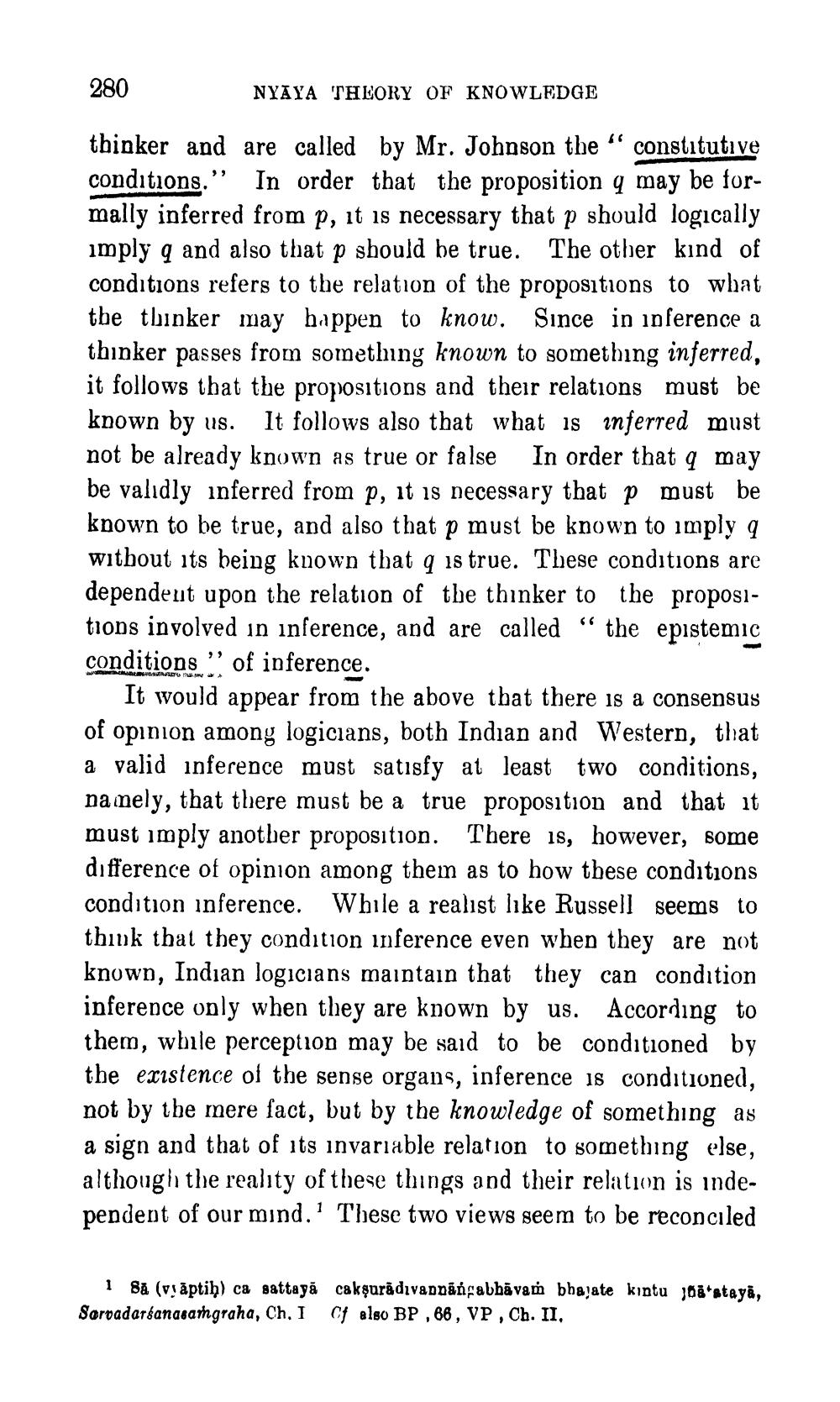________________
280
NYAYA THEORY OF KNOWLEDGE
thinker and are called by Mr. Johnson the “ constitutive conditions." In order that the proposition q may be formally inferred from p, it is necessary that p should logically imply q and also that p should be true. The other kind of conditions refers to the relation of the propositions to what the thinker may happen to know. Since in inference a thinker passes from somethung known to something inferred, it follows that the propositions and their relations must be known by us. It follows also that what is inferred must not be already known as true or false In order that q may be validly inferred from p, it is necessary that p must be known to be true, and also that p must be known to imply a without its being known that q is true. These conditions are dependent upon the relation of the thinker to the propositions involved in inference, and are called “the epistemic conditions of inference.
It would appear from the above that there is a consensus of opinion among logicians, both Indian and Western, that a valid inference must satisfy at least two conditions, namely, that there must be a true proposition and that it must imply another proposition. There is, however, some difference of opinion among them as to how these conditions condition inference. While a realist like Russell seems to thuk that they condition inference even when they are not known, Indian logicians maintain that they can condition inference only when they are known by us. According to them, wbile perception may be said to be conditioned by the existence of the sense organs, inference is conditioned, not by the mere fact, but by the knowledge of something as a sign and that of its invariable relation to something else, although the reality of these things and their relation is independent of our mind." These two views seem to be reconciled
18à (vyāptih) ca sattaya cakşurădivapnangabhāvam bhajate kintu Sorvadarsanasangraha, Ch, I Cf also BP , 66, VP , Ch. II,
08"staya,




